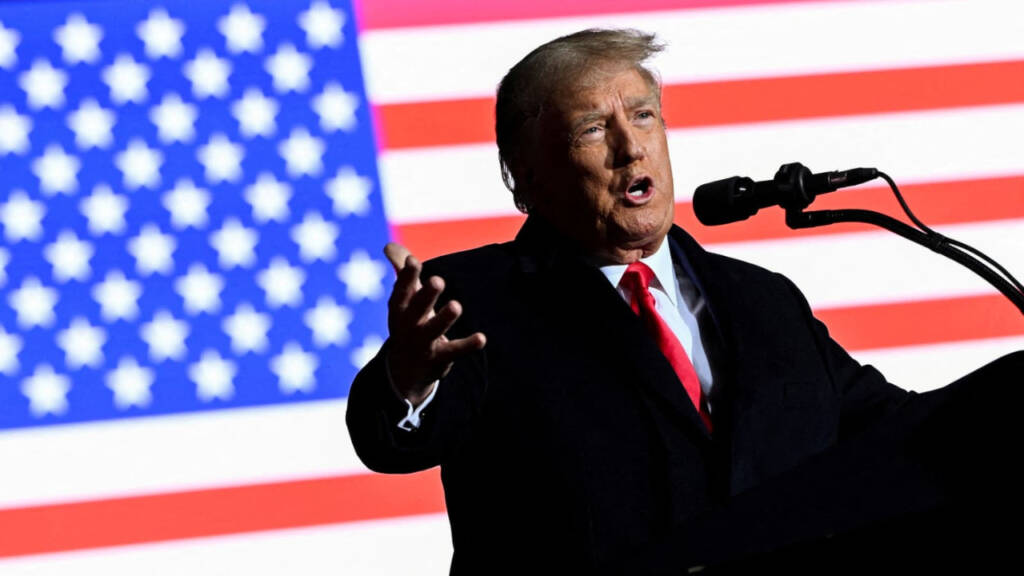The landscape of political campaigns has undergone significant change in recent years, and digital campaigning has emerged as an effective tool in the arsenal of political candidates. As the United States prepares for the 2024 presidential election, digital campaigning has become even more critical. This article examines various aspects and implications of digital campaigning in the context of the upcoming US presidential election.
Coverage and targeting
Digital campaigning allows political candidates to reach a broad and diverse audience, transcending geographic boundaries. Social media platforms such as Facebook, Twitter, and Instagram have billions of active users, giving candidates unprecedented opportunities to connect with potential voters. Targeted advertising allows campaigns to tailor their messages to specific demographics based on age, location, interests, and political affiliation. This precise targeting maximizes the impact of campaign messages and optimizes the allocation of resources.
Engagement and mobilization
One of the most important benefits of digital campaigns is their ability to engage and mobilize. Candidates can use social media platforms to share their views, answer polls and address their concerns quickly. Direct communication with voters in real time helps build trust and allows accurate measurement of public sentiment during campaigns. In addition, digital platforms facilitate grassroots mobilization and enable supporters to organize events, fundraisers, and volunteer activities. Online communities and platforms allow supporters to communicate, share campaign content, and strengthen campaign reach and impact.
Analysis of data and views of voters
A digital campaign generates massive data and provides valuable information about voter behaviour, preferences, and trends. Campaigns can use data analytics tools to analyse voter sentiment, identify critical issues, and understand the concerns of different demographics. Using sentiment analysis, social listening, and predictive modelling, campaigns can tailor their policies and campaign narratives to resonate with specific groups of voters. This data-driven approach improves the effectiveness of campaign strategies and messages and increases the chances of success.
Fundraising
Digital platforms have revolutionized fundraising for political campaigns. Crowdfunding media, email campaigns, and online donation portals offer efficient and cost-effective ways for candidates to raise money. Candidates can use their online presence to mobilize supporters, leverage grassroots networks and solicit small-dollar contributions from multiple donors. Social media platforms also allow campaigns to be launched through targeted fundraising campaigns that reach specific groups of donors and maximize donation potential. In addition, digital campaigns enable transparent reporting and accountability for campaign financing, which increases public trust.
Dissemination of information
A digital campaign is a platform where candidates can directly communicate their political views, campaign promises, and agendas to voters. Websites, social media accounts, and email newsletters serve as information repositories, giving voters easy access to candidate profiles, issues, and campaign updates. The rapid spread of information allows voters to make informed decisions, increasing political campaigns’ transparency and accountability. In addition, digital platforms enable candidates to share multimedia content such as videos, infographics, and interactive tools, making complex political issues more accessible and engaging to a broader audience.
Impact on the political narrative
Digital campaigns have the power to shape and influence the political narrative. Social media platforms have become battlegrounds for ideological debate, where candidates and their supporters engage in discussion, share news, and discuss political issues. The viral nature of digital content amplifies its influence, allowing campaigns to move conversations, counter misinformation and rally public support behind their agenda. However, this effect also raises concerns about the possible rapid spread of echo chambers, filter bubbles, and misinformation. Candidates must navigate this landscape responsibly and engage in fact-checking, transparency, and open dialogue to maintain the integrity of the political debate.
Challenges and ethical aspects
Although a digital campaign offers many advantages, it creates challenges and ethical considerations. The spread of disinformation and disinformation is a significant concern, as false stories can spread quickly online and influence public opinion. Data protection and security are essential when campaigns collect and analyse large amounts of personal data. Algorithms for targeted ads can perpetuate inequality and create echo chambers. In addition, the integrity of the elections is threatened by the possibility of foreigners interfering in digital campaigns. Political campaigns must prioritize authenticity, transparency, responsible data processing, and adherence to ethical guidelines to build and maintain public trust in the democratic process.
As the 2024 US presidential election approaches, digital campaigning has become integral to the political landscape. Its ability to reach, activate, mobilize, and influence voters has changed how campaigns work. Effective use of digital tools can give candidates a competitive advantage by enabling them to connect with voters, raise funds and deliver their message more effectively. However, when conducting campaigns, the challenges and ethical aspects of digital campaigns must also be considered to ensure the honesty and fairness of the selection process. By responsibly harnessing digital platforms’ power, candidates can maximize their impact and promote a more inclusive and informed democracy.
